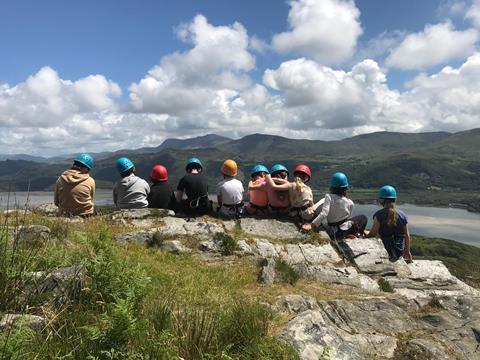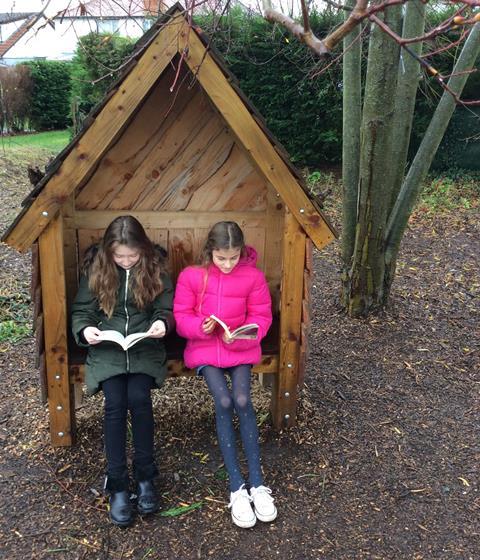Andrew Hutchings, headteacher at Parkgate Primary School in Neston, Cheshire, has told School Travel Organiser that outdoor learning is vital for children to reconnect with their local surroundings, as well as the pride of being awarded the LOtC Mark (Bronze) from the Council for Learning Outside the Classroom (CLOtC).


Firstly, where did your passion for learning outside the classroom come from?
I was originally a Secondary PE teacher and all my hobbies and passions are being in the great outdoors, water and mountain sports. Eventually my career went into Primary teaching but the benefits to working outside come naturally to me.
So what is happening now in your school to get children learning effectively outside the classroom?
One of our teachers, Miss McKeown, is the lead for LOtC and during lockdown she led the staff to adapt all subject planning. The subject leaders monitored their objectives to see how skills could be taken outside. They used the CLOtC website for planning ideas for all year groups and Key Stages.
We built a fire pit where staff read stories to pupils and occasionally toast marshmallows. We created allotments for each class, with inter-class competitions and the food ultimately ends up in our school canteen. We also built an outdoor classroom and created an orienteering course and completed training for it. The orienteering can be linked to all subjects and all year groups.
The classes have made bug and hedgehog habits, taken part in plant spotting, bug hunts and cloud gazing, plus the school council planted hundreds of trees last year, which again links to the curriculum, and global warming goals.
“We aim to develop certain areas further when looking ahead to the future, such as re-embedding school trips after the pandemic, and to try and reconnect with the local community.”
There was also a wooded area which was originally out of bounds for the pupils. We have now cut it all back and created dense paths which lead to reading dens which aim to encourage the quieter pupils who may not enjoy the noisiness of the yard at break time.
It’s not just about going outside in the school grounds, though. We already had in place trips for each topic taught, such as Ruthin Gaol, Chirk Castle and Quarry Bank Mill. Each year group from Year 2 upwards are also encouraged on residentials. We’ve utilised local churches and community groups to educate on local history, architecture, and community issues as well.

This sounds amazing! After such a disjointed time, how can this help pupils now and in the future?
We aim to develop certain areas further when looking ahead to the future. This will help pupils in the long run, such as re-embedding school trips after the pandemic, and to try and reconnect with the local community and encourage them back into school again. We also want to resume residentials when the time is right.
We would also like to continue the journey after being awarded the LOtC Bronze Mark, to achieve the LOtC Silver Mark and to engage parents to talk about their careers and how this helps shape the world. The aim is to make the pupils more enthusiastic about what they might like to be when they are older.
Congratulations, tell us a little bit more about how you have achieved the CLOtC’s Bronze Mark.
The structure of the application sets out your journey clearly so you can see the next steps you need to take. Our biggest achievements so far have been improved opportunities to learn outside. The allotments, planting more than 100 trees and making a great relationship with our community to involve the pupils in activities such as litter picking have all contributed to the award which is our proudest achievement to date.
Finally, how do you communicate your school’s values to your pupils?
The school’s values are in everything that we do. We also like to encourage ‘real life’ learning experiences in all we do to develop pupils’ understanding of relevant issues such as plastics in the ocean and the palm oil project. All of this links back to engaging pupils and developing links to encourage the next generation of campaigners that can make a difference.










